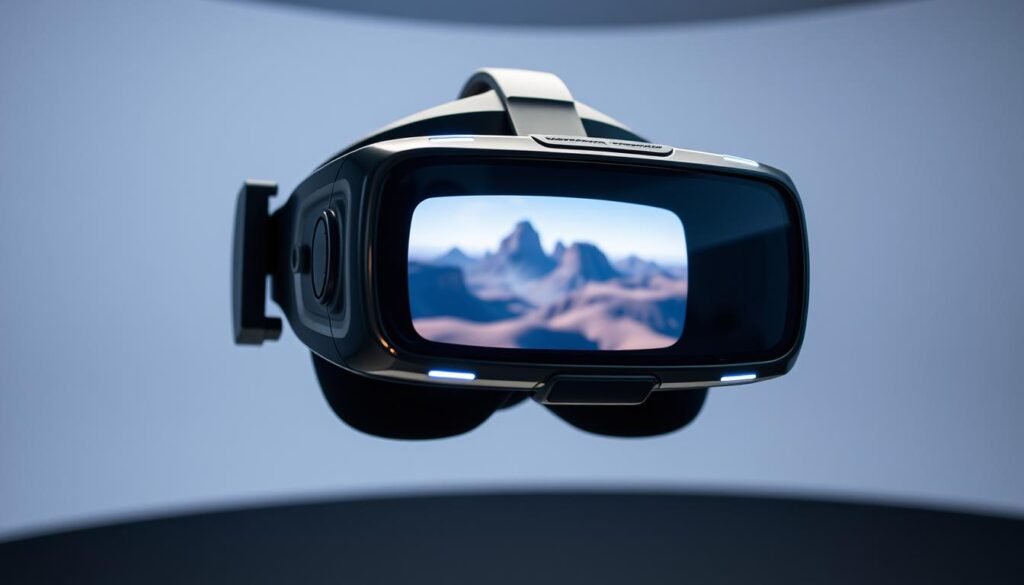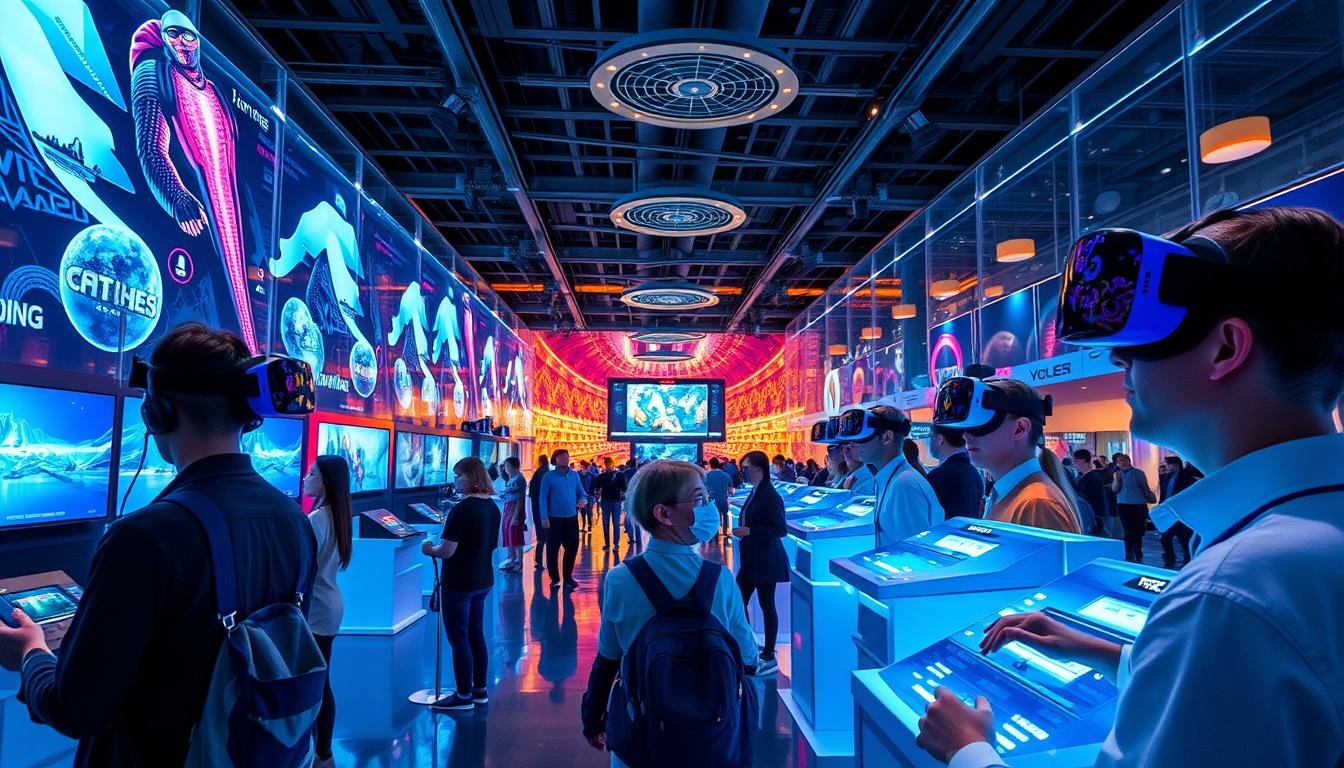Imagine stepping into a world where reality blends seamlessly with the digital realm. Last month, at CES 2025 in Las Vegas, this vision became a tangible experience for attendees. The event showcased groundbreaking advancements in virtual reality and augmented reality, offering a glimpse into the future of immersive technology.
From cutting-edge headsets to experimental devices, the exhibition floor was a playground for tech enthusiasts. Industry leaders like Sony and TCL unveiled products that promise to redefine how we interact with digital environments. The Qualcomm XR2+ chip, for instance, was a standout, powering devices with unparalleled performance.
This year’s event highlighted not just the hardware but also the experiences these technologies enable. Whether it’s gaming, professional applications, or everyday use, the innovations presented at CES 2025 are set to shape the tech landscape for years to come. Stay tuned as we delve deeper into these advancements and their real-world implications.
Key Takeaways
- CES 2025 showcased the latest in virtual and augmented reality technologies.
- New headsets and devices were unveiled, featuring advanced displays and chipsets.
- Industry leaders like Sony and TCL made significant announcements.
- The Qualcomm XR2+ chip was a highlight, promising enhanced performance.
- These innovations are set to influence both consumer and professional applications.
Overview of CES 2025 VR & AR Trends
The tech landscape at CES 2025 was a testament to the rapid evolution of immersive experiences. This year’s event brought together key players in the industry, showcasing innovations that are set to redefine how we interact with digital worlds. From advanced AR glasses to next-generation headsets, the focus was on design and performance.
Event Highlights and Groundbreaking Announcements
One of the standout moments was the unveiling of AR smart glasses with enhanced display capabilities. Companies like Sony made significant announcements, pushing the boundaries of what’s possible in immersive technology. The Qualcomm XR2+ chipset, for instance, was a game-changer, offering unparalleled processing power for VR devices.
These developments highlight how the industry is moving towards more user-friendly designs. Lighter, more comfortable headsets and glasses are now a priority, ensuring a seamless experience for users. The integration of advanced technology is also paving the way for richer, more immersive content.
Future Trends in VR Design and Technology
Looking ahead, the focus is on creating devices that blend design with functionality. Innovations in glasses and headsets are expected to offer wider fields of view and reduced lag, enhancing the overall user experience. Companies like Sony are leading the charge, setting benchmarks for the future of VR design.
These trends are not just about hardware. The role of immersive content is equally important, offering users a more enriched experience. As the industry evolves, you can expect devices that are not only powerful but also intuitive and accessible.
For more insights into the key highlights from CES 2025, explore how these advancements are shaping the future of tech.
Spotlight on Best VR Innovations Unveiled at CES

The future of immersive technology took a giant leap forward at CES 2025. This year’s event showcased a range of headsets and prototypes that pushed the boundaries of what’s possible in virtual experiences. From sleek designs to powerful chipsets, the innovations on display are set to redefine how you interact with digital worlds.
Advancements in Headset Technologies
One of the standout features at CES 2025 was the evolution of headset designs. Companies introduced lighter, more comfortable models that prioritise user experience. For instance, the latest Meta Quest prototypes feature ergonomic designs and enhanced display capabilities, making them ideal for extended use.
These new models also boast wider fields of view and reduced latency, ensuring smoother and more immersive interactions. The focus on design and functionality highlights how the industry is moving towards devices that are both powerful and user-friendly.
Pioneering Processing Power with Qualcomm XR2+
At the heart of these advancements lies the Qualcomm XR2+ chip. This cutting-edge processor delivers unparalleled power, enabling higher resolution per eye and faster rendering times. Its enhanced GPU and AI capabilities ensure that every image and movement in the virtual world feels lifelike.
Compared to earlier iterations like the Meta Quest 2, the new prototypes powered by the XR2+ chip offer a significant leap in performance. This pairing of advanced hardware and software sets a new benchmark for the industry.
- Lighter, ergonomic designs for extended use.
- Wider fields of view and reduced latency for smoother experiences.
- Qualcomm XR2+ chip enables higher resolution and faster rendering.
- Enhanced GPU and AI capabilities for lifelike interactions.
These innovations are not just about hardware. They represent a shift towards creating virtual experiences that are more immersive, intuitive, and accessible. As the industry continues to evolve, you can expect devices that redefine what’s possible in the digital world.
Exploring Emerging AR and Mixed Reality Experiences

Mixed reality is no longer a futuristic concept but a present-day reality. At CES 2025, the spotlight was on how augmented reality (AR) and mixed reality are transforming industries. From wearable devices to automotive applications, these technologies are blurring the lines between the digital and physical worlds.
Innovative AR Glasses Transforming Wearables
The wearables market is undergoing a revolution, thanks to innovative AR glasses. Devices like TCL’s RayNeo X3 and offerings from Asus and Xreal are setting new standards. These glasses are not just lightweight but also packed with advanced features. For instance, the RayNeo X3 boasts a sleek design and compatibility with the latest Snapdragon chipsets.
What sets these devices apart is their ability to deliver immersive content. Whether it’s for gaming, productivity, or entertainment, the experience is seamless. Brands like Apple and Samsung are also pushing boundaries, with rumours of their next-gen AR glasses in the works.
Automotive Integration and Real-World Applications
AR is not just for wearables; it’s making waves in the automotive sector too. At CES 2025, BMW demonstrated how AR can enhance driving experiences. Their system provides real-time navigation aids and safety alerts, all displayed on the windshield. This integration ensures drivers stay informed without taking their eyes off the road.
Another exciting development is the use of AR in car maintenance. Mechanics can now use AR glasses to diagnose issues and access repair guides in real-time. This blend of mixed reality and automotive tech is paving the way for smarter, safer vehicles.
| Device | Key Features | Brand |
|---|---|---|
| RayNeo X3 | Lightweight, Snapdragon chipset | TCL |
| BMW AR System | Real-time navigation, safety alerts | BMW |
| Next-gen AR Glasses | Rumoured advanced features | Apple, Samsung |
These advancements highlight how AR and mixed reality are becoming integral to our daily lives. For more insights into how these technologies are shaping the future, explore the latest developments at CES 2025.
Conclusion
CES 2025 highlighted how immersive technologies are reshaping industries and everyday life. From advanced headsets like the Meta Quest Pro to the powerful Qualcomm XR2+ chip, the event showcased solutions that push the boundaries of computing and mixed reality. These innovations are not just for entertainment but also offer practical applications for consumers and professionals alike.
Emerging AR glasses, such as those from RayNeo, are transforming wearables with sleek designs and enhanced functionality. These devices are paving the way for a lot of new possibilities in how you interact with digital environments. Whether it’s for gaming, productivity, or real-world solutions, the advancements unveiled at this event are set to make a significant impact.
Events like CES play a crucial role in setting the agenda for future technological developments. Stay updated with the latest news to see how these innovations evolve from prototypes to market-ready products. For more insights, explore how CES 2024 showcased significant advancements in immersive technologies.
FAQ
What were the standout trends in VR and AR at CES 2025?
How did Qualcomm’s XR2+ processor impact VR devices?
What innovations were seen in AR glasses at CES 2025?
Were there any notable automotive integrations with AR technology?
What makes the Meta Quest Pro a standout product?
Did Apple introduce any new VR or AR products at CES 2025?
How did Sony contribute to the VR industry at CES 2025?
Source Links
- The top new gaming TVs will have this one spec — here’s what you need to know
- DeepSeek and the 5th Industrial Revolution
- AR: Trends, Insights, and Innovations
- Key Gaming Developments and Trends to Watch in 2025
- How robotics and AI-powered technologies are driving innovation in the UK
- List of PlayStation VR2 games
- Exploring the Future of Tech: UAT at CES
- Innovative Smart Home Products Shown at CES 2025 – Innovation & Tech Today
- How KeyShot Redefined Quality and Speed in Industrial Design Rendering – Yanko Design
- 2025 HPA Tech Retreat | HPA – Hollywood Professional Association
- ScienceDaily: Your source for the latest research news
